Pronominal verbs are verbs like metterci and andarsene that have pronouns attached. In this lesson, we will learn what exactly are pronominal verbs and how to conjugate them.
Pronominal verbs in Italian
Pronominal verbs are verbs that have one or two pronouns attached to them. The pronouns have no meaning of their own, but only serve to give the verb a new meaning. For example, the pronominal verb metterci is composed of the verb mettere + ci.
The verb mettere means to put, place, the pronominal verb metterci means to take (time).
| mettere | Metto la borsa sul tavolo. | I put the bag on the table. |
| metterci | Ci metto solo due minuti. | I’ll only take two minutes. |
These verbs function similarly to such verbs like take – take off, which change their meaning by adding a small ‘word’ to the verb.
Composition of pronominal verbs
Pronouns that can be attached to verbs are only the reflexive pronouns (si) and ci, ne, la, le.
Actually, reflexive verbs are also pronominal verbs: they are formed just with a verb and a pronoun. However, they are always basically learned separately and earlier than other pronominal verbs. You can review reflexive verbs in our lesson on this topic.
Pronominal verb conjugation
1. Pronominal verbs with only one pronoun
The verb is conjugated normally and the pronoun is placed before the conjugated verb, leaving the pronoun unchanged.
| finirla | to stop | la finisco, la finisci, la finisce, la finiamo, la finite, la finiscono |
| prenderle | to get hit, catch it | le prendo, le prendi, le prende, le prendiamo, le prendete, le prendono |
| provarci | to try | ci provo, ci provi, ci prova, ci proviamo, ci provate, ci provano |
| averne abbastanza | to have enough | ne ho, ne hai, ne ha, ne abbiamo, ne avete, ne hanno abbastanza |
Some sample sentences:
| La finisci di dirmi cosa devo fare? | Will you stop telling me what to do? |
| Torna qui o le prendi! | Come back or you’ll catch one! |
| Ci provo. | I’ll try. |
| Ne ho abbastanza di lui! | I’ve had enough of him! |
2. Pronominal verbs with two pronouns
Pronominal verbs with two pronouns always have either ci or the reflexive pronoun si together with la/le/ne.
The pronouns si and ci become se and ce, respectively.
- farcela to make it, succeed = fare + ci + la
- andarsene to go away = andare + si (reflexive) + ne
2.1. Pronominal verbs like farcela
Pronominal verbs composed of ci + la/le/ne (-cela, -cele, -cene) are quite simple: both pronouns are placed before the verb and always remain unchanged.
| farcela | to make it, succeed | ce la faccio, ce la fai, ce la fa, ce la facciamo, ce la fate, ce la fanno |
| avercela (con) | being mad at someone, have it in for someone | ce l’ho, ce l’hai, ce l’ha, ce l’abbiamo, ce l’avete, ce l’hanno |
2.2. Pronominal verbs like andarsene
For pronominal verbs composed of a reflexive pronoun (si) + la/le/ne, you need to match the reflexive pronoun to the person in question. Thereby -i becomes -e: mi > me, ti > te, si > se and so on. The other pronoun (la/le/ne) remains unchanged.
| andarsene | to go away | me ne vado, te ne vai, se ne va, ce ne andiamo, ve ne andate, se ne vanno |
| prendersela | be offended | me la prendo, te la prendi, se la prende, ce la prendiamo, ve la prendete, se la prendono |
Some sample sentences:
| Sono stanco, me ne vado. | I’m tired, I’m leaving. |
| Stavo scherzando, non te la prendere! | Just kidding, don’t be offended! |
| Non ce la faccio più! | I can’t do it anymore! |
| I tuoi amici ce l’hanno con me. | your friends have it in for me. |
3. Formation of passato prossimo
The formation of passato prossimo is also done as usual: the pronoun is placed before the verb: ci ho provato I tried.
Attention with la and le: The ending of the participle must be aligned accordingly into -a and -e: farcela > (io) ce l’ho fatta I’ve made it
Also withne you must match the ending to the reference object. If there is none, the ending remains generic -o.
This is a rule that applies generally: if you have lo/la/li/le/ne before the verb in passato prossimo, you must align the ending. You can review this rule in our lesson on this topic.
| farcela | to make it | ce l’ha fatta, ce l’hai fatta, ce l’ha fatta, ce l’abbiamo fatta, ce l’avete fatta, ce l’hanno fatta |
| prenderle | to get hit, catch it | le ho prese, le hai prese, le ha prese, le abbiamo prese, le avete prese, le hanno prese |
| averne abbastanza | to have enough | ne ho avuto, ne hai avuto, ne ha avuto, ne abbiamo avuto, ne avete avuto, ne hanno avuto abbastanza |
Some sample sentences:
| Se n’è andato poco fa. | He just left a little while ago. |
| Il mio amico ce l’ha fatta, ha vinto! | My friend did it, he won! |
| Non me la sono presa, tranquillo. | I’m not offended, don’t worry. |
Esercizi
1. Complete the conjugation of the following verbs.
2. Drag the pronouns to the right place.
Impara di più
Overview Verbi con e senza preposizione
Verbs with and without preposition: finire di, iniziare a, dubitare di, ringraziare per,….
List of verbs with direct and indirect pronouns
List of verbs with direct and indirect object
What is the difference between metterci and volerci?
The Italian verbs metterci and volerci express the time it takes to do something, but they behave differently.
Do you already have a grammar to practice?
Master Italian grammar with good exercise books
I pronomi italiani A1-C1
Grammar book with exercises that explains in a simple and basic way the use of pronouns in Italian.
Grammatica avanzata della lingua italiana B1-C1
Grammar for learners with a good knowledge of Italian but who want to perfect it further
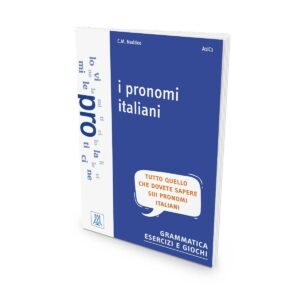
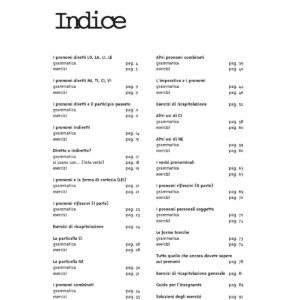
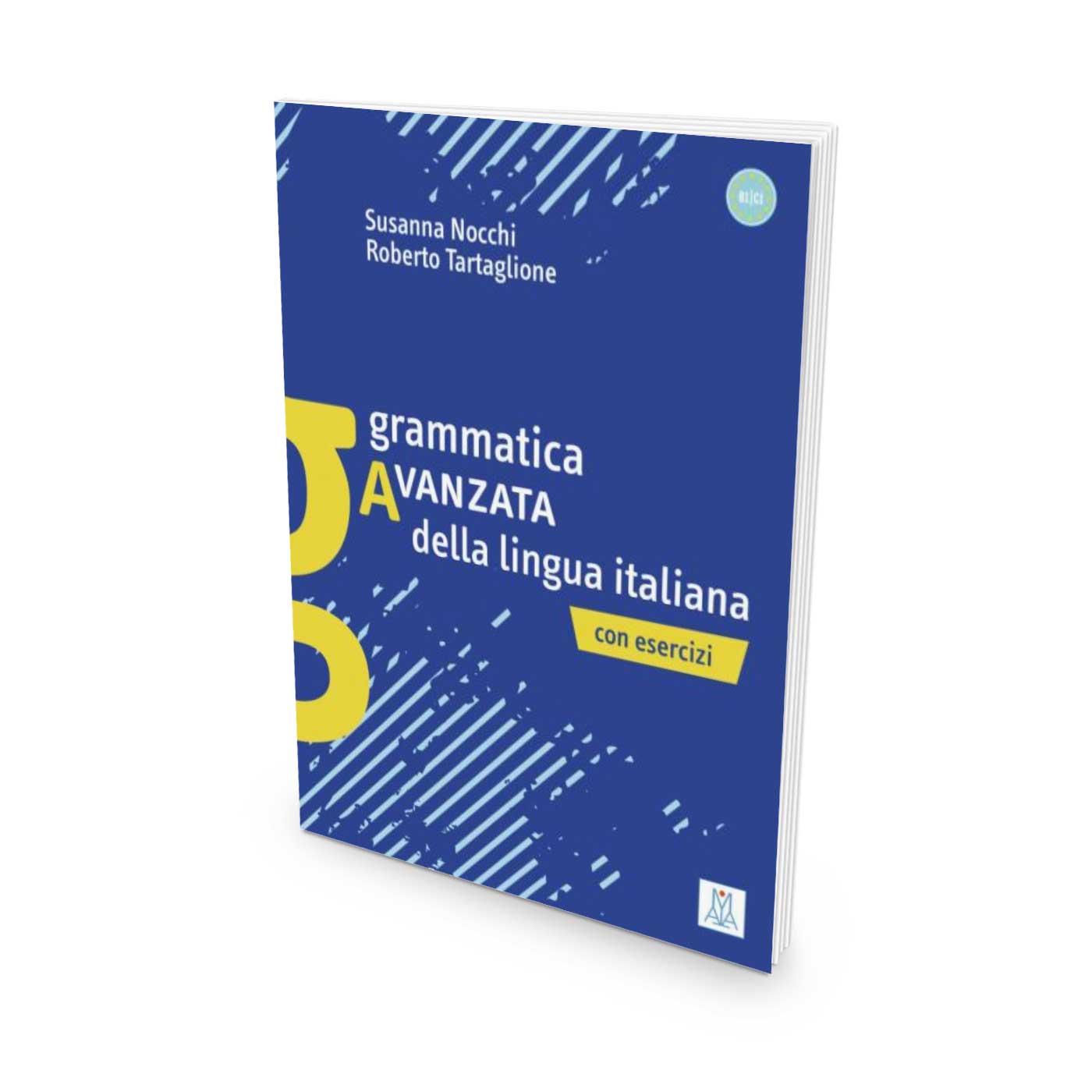
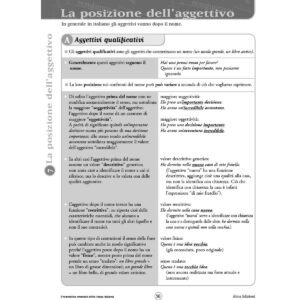


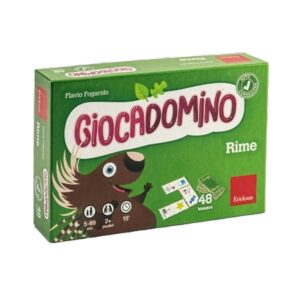




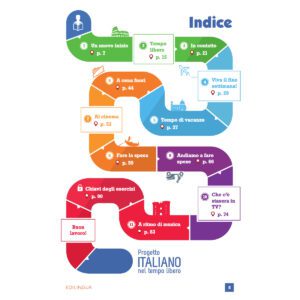


One thought on “Pronominal verbs – Verbi pronominali”
HI , how do you conjugate Pronominale Verb like ” mettercisi & Trovarcisi ” ? mi ci , ti ci , ci si ? , ( noi ? ) , vi ci , ( loro ? ) ..
or where I would find it !! thnx